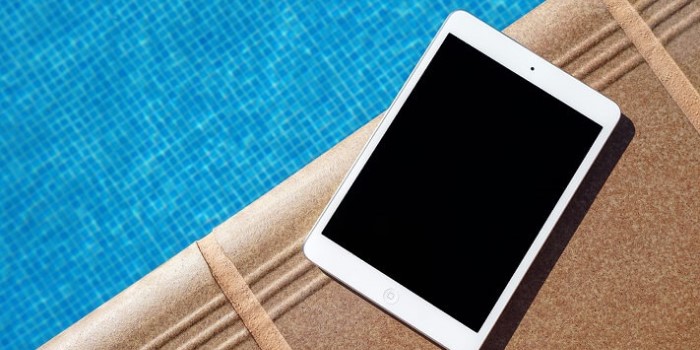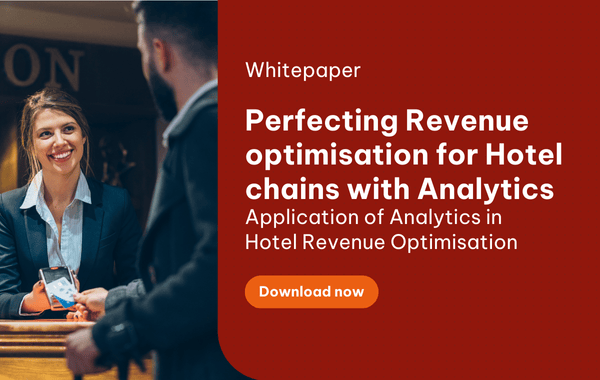Advanced technologies provide hoteliers with full-scope support and benefits, from front desk to back-office operations. Cloud technology, for example, has played a key role in improving the end-to-end experience from booking to post-staying of guests, reducing cost and resource demands, increasing ROI, and hence, improving the overall business management capability of the business.
Read more: How Hoteliers Cope with the Rise of the Sharing Economy

The new challenge for hotel businesses in the digital age
Coherence with the rising importance of technology in the customer overall experience, leading hotel chains are spending more budget on installing new technologies at their property now than ever.
According to EY’s research, in 2020, the Millennials will replace Gen X as the dominating customer segment for the hospitality industry. This means technology will be the key solution that allows hotel businesses to hone unique features and effectively attract the new generation of customers.
There is no surprise to the fact that young people these days do everything online, either with Internet browsers or with their mobile phones. Young people habit of relying on technology has affected the traditional ways of approaching customers for hoteliers significantly.
Moreover, the attributes that build up guest satisfaction in hospitality is also expected to change due to the emergence of the new generation of customer. Guest preference today has moved on from the product quality or the value of the stay to the authenticity of the experience they get and of the product itself.
Read more: [Infographic] 5 Hospitality Trends To Pay Attention To in 2019
Integrating technology is the solution to accelerate the relationship between hotels and guests. To satisfy the expectation of the customer, one of the most effective means is through the analysis of their habits/data throughout all of the touchpoints with the business.
The need for an effective system to support the recording and analysing customer data has formed a new challenge for hoteliers: to invest in the right type of technology that is able to gather data, provide insights and improve the operations quality as well as the engagement with customers.
Given that new technologies are continuously evolving, hoteliers need to be careful when implementing a new process/system for their organisation. It is crucial for business leaders to ensure that the new system is aligned with the strategic direction of the business.
Among the most deliberated technology for hoteliers – the Cloud technology is positioned at the centre of the technology evolvement. Cloud adaptability is one of the key priorities for business leaders that aim to lead in the current technology competition. The Cloud platform provides hoteliers with the ability to automate operational processes and equip themselves with smart capabilities like business intelligence, information analysis in real-time and mobile accessibility for management and functional purposes.
Read more: 5 Ways Cloud Solutions Power Business Agility
Property management software (PMS) on the Cloud
Property management software is a system that unifies the control of all the factors of a hotel organisation, that, not only allow hoteliers to refine and deliver seamless guest experiences but also increase their visibility into the business’s operation.
PMS covers all the operations of the hotel operations – from booking reservations, guest check-in/check-out, room services to collect and analysis guest data for smarter interactions. Additionally, PMS on cloud equips both of the hoteliers and the customers with improved agility and mobile functionalities that connect and tighten the relationship from both ends.
With a PMS in place, hotel businesses are now able to elevate the guest experience to a whole new level. The PMS integrates the front desk and back office operations into one single end-to-end solution, improves the visibility and control over revenue, quality and value for hoteliers.
Read more: Should Hoteliers Consider Implementing Cloud Applications?PMS platforms can be divided into 3 types: On-premise, hybrid and web-native cloud. Currently, the majority of hotels have chosen to use a traditional on-premise PMS that is stored in the hotel’s premise and accessible through a Windows software.
On the other hand, when compared with the on-premise option, the Hybrid and web-native Clouds allow users to access the data via the internet browser and are optimised for mobile and tablet use. The cloud options are a subscription-based pricing model, which is more cost-effective as they are typically charged as a fee per room per month.
What’s more? Scalability. For seasonal industries like hospitality, customer demand can rise quickly in a short amount of time, hence, hotel operations have to be able to expand accordingly and rapidly so that the revenue won’t slip off their hands. Being on the cloud allows organisations to escalate as quickly as possible, with comprehensive capabilities at a much lower cost and shorter time compared to a traditional on-premise system.
Read more: Automating Financial Forecast for Hotels with Cloud Systems
In summary, the migration to the cloud in the hospitality industry cannot be neglected if you plan to keep your organisation competitive. It is projected that hospitality spending on technology will continue to rise to provide the younger generation of hotel guests the unique experience they’re looking for.
In the long term, integrating an on-premise PMS at the hotel will be not enough, because the PMS on Cloud can yield so much more: putting together the services and products that satisfy guest’s needs and improving the overall bottom line of the entire hotel operation.
Interested in learning how analytics can help to maximise a hotel's revenue management? Download our whitepaper below!
 English
English  Vietnamese
Vietnamese 

